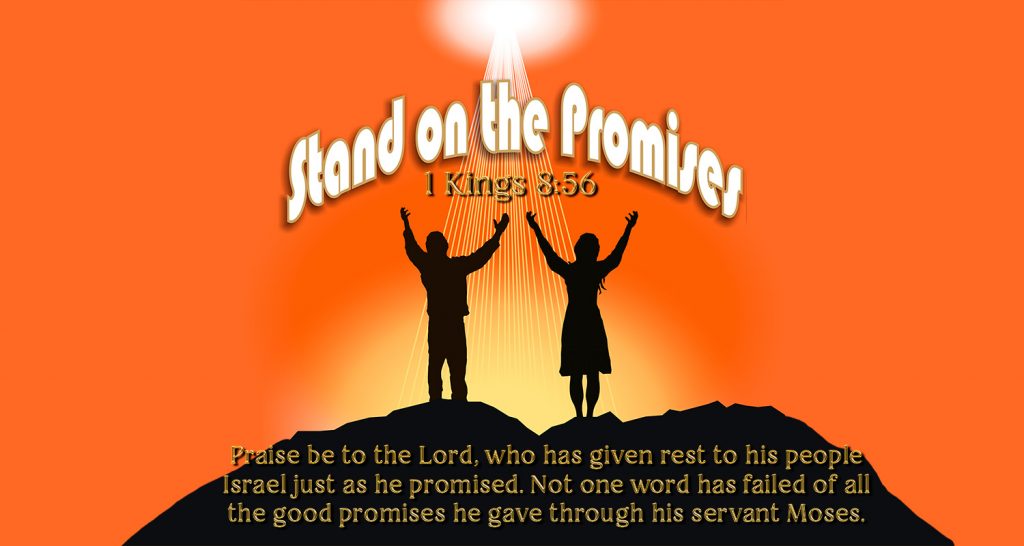The LORD is my strength and my shield; my heart trusted in Him, and I am helped; therefore my heart greatly rejoices, and with my song I will praise Him. The LORD is their strength, and He is the saving refuge of His anointed. Save Your people, and bless Your inheritance; shepherd them also, and bear them up forever. Psalm 28: 7-9, NKJV.
Gracious God, we need You as we continue our study in Your Word. We need Your help in order to see all that You want us to see, as we study! In the name of Jesus Christ we pray. Amen.
Today we are going to continue the study that we initiated yesterday. We will thrill as we contemplate how much God loves His children, and how He takes cares of His own. David was one who knew about God’s anointed. Most of us will remember with what respect and consideration he dealt with Saul, even though Saul was out to take his life. Many may remember the opportunity he had to take the life of Saul in the cave, but refused to do so, and uttered these famous words: “He said to his men, “The LORD forbid that I should do such a thing to my master, the LORD’s anointed, or lift my hand against him; for he is the anointed of the LORD” (1 Samuel 24: 6, emphasis provided). This term usually refers to a consecrated person (king, priest, child of God). Interestingly enough it was also used to refer to the pagan king, Cyrus of Persia. This proves, beyond the shadow of a doubt, that it is God who calls people and consecrates them to do His bidding. Only God can anoint someone, and separate him or her, for His service. It is in the New Testament that we find the term applied to Christ, “the anointed One.” This anointing took place on the day of His baptism, when the Holy Spirit, like a dove, descended upon Him. He became Jesus, the Christ, (christos), the Greek equivalent, of the term Messiah. This concept of the Messiah was not fully understood or developed until during the period of the New Testament.
Once again we come to the word save. The root of this word carries some very interesting connotations. Among some of the most interesting are: to be open, wide, and free. Deliverance from tribulation; deliverance from certain death; to succor, to avenge, to defend. To bring to a place of safety or broad pasture. The protective care of a shepherd. The salvation that only comes from God. The correlation of the words “wide and free,” and “broad pastures;” and mention of, “the protective care of a shepherd,”brings to my mind the Twenty-Third Psalm. Jesus referred to Himself as the “Good Shepherd” who “lays down His life for His sheep” (John 10: 11). It was the laying down of His life, for our sake, that brought us salvation! Truly, salvation has only one source, and that is God!
The plea of the psalmist for God to save His “people,” is not limited to any special group. It is a term referring to all people. Throughout Scripture the invitation is to, “whosoever will” (Isaiah 55: 1; John 3: 16; Revelation 22: 17). All who will, may come, and accept the salvation wrought by Jesus Christ, on behalf of all people. Then comes the second half of the plea for God to bless His “inheritance.” The root word for inheritance carries the added significance of a heirloom, occupancy, portion or state of blessing assigned by God. I found this a bit surprising, since spiritual things are not inherited, or passed on, but accepted, by the individual. The idea is that all who accept Christ as their Savior, become heirs of salvation, and to them, the heavenly Canaan, has been promised. When Christ returns, we will all come into our inheritance together (Hebrews 11: 40). God is the only one who can bless the inheritance that he has preserved for His children. Another connotation is that God is considered the portion and inheritance of His people, ” “I will call them ‘my people’ who are not my people; and I will call her ‘my loved one’ who is not my loved one,”and, “It will happen that in the very place where it was said to them, ‘You are not my people,’ they will be called ‘sons of the living God.’ ” ” (Romans 9: 25, 26).
“Forever” is a hard term for mortals to understand. We dwell in time. In our very beginnings there was time, “And the evening and the morning, were the first day” (Genesis 1; 5). God inhabits eternity (Isaiah 57: 15). One day is like a thousand years to Him, and a thousand years as one day (2 Peter 3: 8). But because God created us to live forever, He has “set eternity” in our hearts (Ecclesiastes 3: 11). One interesting connotation of the root word is, “the vanishing point.” I found that just breathtaking! In eternity there comes a moment when the point disappears. You stop counting! Another wonderful connotation was, “beyond this temporal sphere.” Dearly beloved, one of these days we are going to find ourselves, beyond everything we have ever known! Then we will realize that eternity has begun. . .
When that time comes, may God grant, that by His grace, we will all be there!
